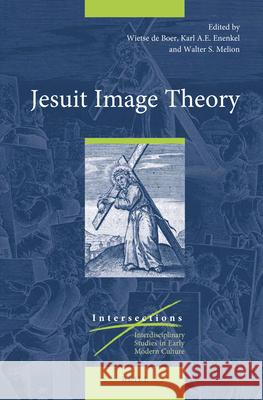Jesuit Image Theory » książka
Jesuit Image Theory
ISBN-13: 9789004319110 / Angielski / Twarda / 2016 / 500 str.
The Jesuit investment in images, whether verbal or visual, virtual or actual, pictorial or poetic, rhetorical or exegetical, was strong and sustained, and may even be identified as one of the order's defining characteristics. Although this interest in images has been richly documented by art historians, theatre historians, and scholars of the emblem, the question of Jesuit image theory has yet to be approached from a multi-disciplinary perspective that examines how the image was defined, conceived, produced, and interpreted within the various fields of learning cultivated by the Society: sacred oratory, pastoral instruction, scriptural exegesis, theology, collegiate pedagogy, poetry and poetics, etc. The papers published in this volume investigate the ways in which Jesuits reflected visually and verbally on the status and functions of the imago, between the foundation of the order in 1540 and its suppression in 1773. Part I examines texts that purport explicitly to theorize about the imago and to analyze its various forms and functions. Part II examines what one might call expressions of embedded image theory, that is, various instances where Jesuit authors and artists use images implicitly to explore the status and functions of such images as indices of image-making. Contributors include Wietse de Boer, James Clifton, Ralph Dekoninck, Karl Enenkel, Pierre Antoine Fabre, David Graham, Agnes Guiderdoni, Anna Knaap, Walter Melion, Jeffrey Muller, Hilmar Pabel, Aline Smeesters, Andrea Torre, and Steffen Zierholz











